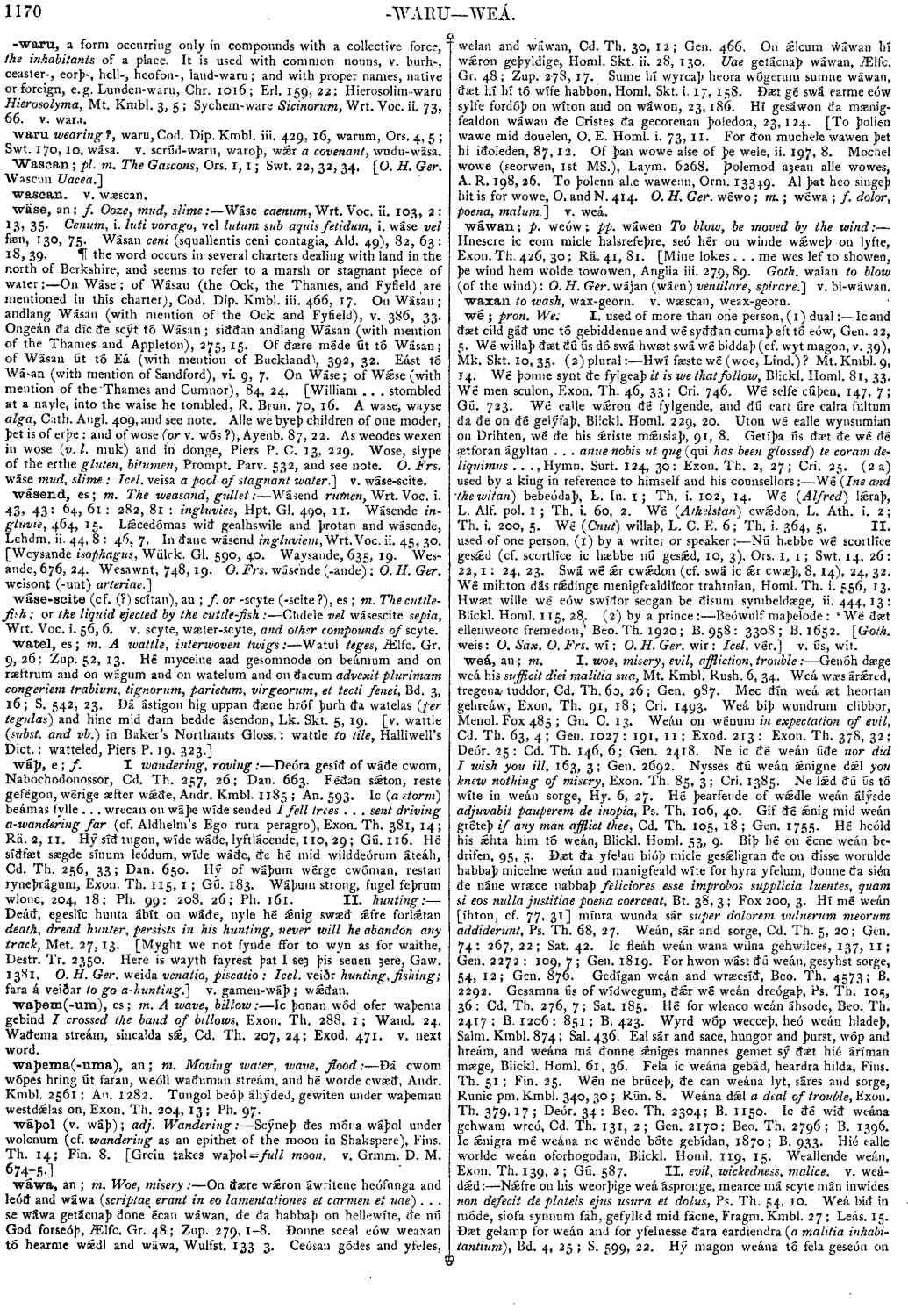wé
- pronoun
-
Ic and ðæt cild gáð unc tó gebiddenne and wé syððan cumaþ eft tó eów,
- Gen. 22, 5.
-
Wé willaþ ðæt ðú ús dó swá hwæt swá wé biddaþ (cf. wyt magon, v. 39),
- Mk. Skt. 10, 35.
-
Hwí fæste wé (woe,
- Lind.)? Mt. Kmbl. 9, 14.
-
Wé þonne synt ðe fylgeaþ
it is we that follow,
- Blickl. Homl. 81, 33.
-
Wé men sculon,
- Exon. Th. 46, 33; Cri. 746.
-
Wé selfe cúþen,
- 147, 7; Gú. 723.
-
Wé ealle wǽron ðé fylgende, and ðú eart úre ealra fultum ða ðe on ðé gelýfaþ,
- Blickl. Homl. 229, 20.
-
Uton wé ealle wynsumian on Drihten, wé ðe his ǽriste mǽrsiaþ, 91, 8: Getíþa ús ðæt ðe wé ðé ætforan ágyltan . . . anue nobis ut quê (qui has been glossed) te coram de*-*liquimus. . ., Hymn. Surt. 124, 30: Exon. Th. 2, 27; Cri. 25. (2 a) used by a king in reference to himself and his counsellors :-- Wé
(Ine and the witan)
bebeódaþ,- L. In. 1; Th. i. 102, 14.
-
Wé
(Alfred)
lǽraþ,- L. Alf. pol. 1; Th. i. 60, 2.
-
Wé
(Athelstan)
cwǽdon,- L. Ath. i. 2 ; Th. i. 200, 5.
-
Wé
(Cnut)
willaþ,- L. C. E. 6; Th. i. 364, 5.
-
Nú hæbbe wé scortlíce gesǽd (cf. Scortlíce ic hæbbe nú gesǽd,
- 10, 3), Ors. 1,1; Swt. 14, 26: 22, 1: 24, 23.
-
Swá wé ǽr cwǽdon (cf. swá ic ǽr cwæþ,
- 8, 14), 24, 32.
-
Wé mihton ðás rǽdinge menigfealdlícor trahtnian,
- Homl. Th. i. 556, 13.
- Hwæt wille wé eów swíðor secgan be ðisum symbeldæge, ii. 444, 13: Blickl. Homl. 115, 28.
-
Beówulf maþelode : ' Wé ðæt ellenweorc fremedon',
- Beo. Th. 1920; B. 958: 3308; B. 1652.
Bosworth, Joseph. “wé.” In An Anglo-Saxon Dictionary Online, edited by Thomas Northcote Toller, Christ Sean, and Ondřej Tichy. Prague: Faculty of Arts, Charles University, 2014. https://bosworthtoller.com/34727.
Checked: 0